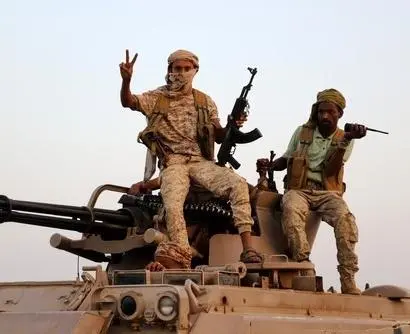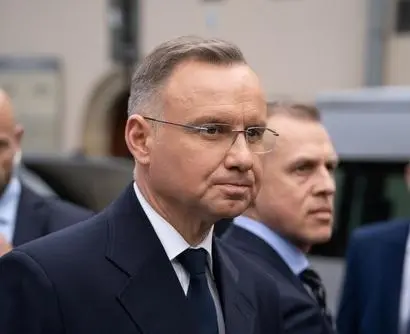Abstract: The Yemeni war is, and has been ongoing since 2015. However, a plausible development in the war was the first nationwide truce declared in 2016. Saudi Arabia announced the United Nations (UN) brokered truce on the 2nd of April 2022 – the first day of the holy month of Ramadan. The move was appreciated and accepted by all warring parties, who benefitted from said truce in various ways. For instance, both the Houthis and the Saudi-led coalition share an interest rooted in consolidating their position in Marib. Hence, whichever warring side controls Marib, would have the possibility of any form of leverage during the peace talks before any negotiations. Although the truce was accepted, it is rather challenging to extend the agreement as all involved parties have various demands and interests which stall and hinder mutual agreement. Hence, the peace talks may fail to extend the truce.
Bottom-line-up-front: While the recent truce announced in April 2022 currently holds, it will not be extended. It is safe to assume that once the holy month comes to a close, all the warring parties will commence their military actions with the region of Marib as the main target.
Problem statement: How can the UN-brokered truce for Yemen and the possibility of its extension be evaluated?
So what?: The international community (particularly the UN), should step up and urge all the warring parties in Yemen to find common ground to bring peace to the nation, which has been at war for seven years.

Source: shutterstock.com/anasalhajj
The Yemeni war took a sharp turn recently with the announcement of a 3-day truce by Mahdi al-Mashat, the Houthi President of the Supreme Political Council of Yemen[1]. The announcement was made on March 26th, after the Houthis launched one of the most intense drone and rocket attacks in Saudi Arabia in 2018, and correspondingly, on March 29th, a truce was announced by Saudi Arabia, coming into force on March 30th, from 06:00 local time in Yemen[2]. Prior to that, the UN urged the warring parties to suspend all forms of military operations during the holy month of Ramadan. As per the agreement, Saudi Arabia stated that it would halt all of its military, air, and maritime operations in Yemen. The unilateral truce by Saudi Arabia was thereafter endorsed by Iran as well.
The UN urged the warring parties to suspend all forms of military operations during the holy month of Ramadan. As per the agreement, Saudi Arabia stated that it would halt all of its military, air, and maritime operations in Yemen.
However, the Houthis rejected the declaration as restrictions were still in place on the ports and the closure of the Sana’a airport. The coalition blocked commercial flights and ships, stating that the Houthis used the avenues to transport weapons and ammunition from Iran and Hezbollah. In contradiction, the Houthis demanded that the ports and the airport restrictions be lifted, asserting that they prevent humanitarian aid from reaching North Yemen, which has led to a lack of fuel, food and supplies – resulting in dire impacts on the afflicted civilians.
Be that as it may, following these temporary truces, the UN special envoy Hans Grundberg announced a two-month truce in the Yemeni war on April 2. It was the first nationwide truce announced since 2016[3]. The latest bilateral truce came into effect at 16:00 GMT on April 2nd, which coincides with the first day of the holy month of Ramadan for many Muslims. As of now, all the warring parties have agreed to cease all offensive military operations (air, ground and maritime) inside Yemen and across the border.
Since the truce, Yemen has seen significant and renewed freedom of movement. The Saudi-led coalition, comprising of Sunni-majority Arab states (Bahrain, Egypt, Jordan, Kuwait, Morocco, Qatar, Sudan, and the United Arab Emirates), allowed 18 vessels to carry fuel in the Al-Hudaydah port. Two commercial flights were also allowed to fly from the Sana’a airport, Houthi’s capital, to Jordan and Egypt weekly. The decision to lift restrictions on ports and airports was a strong demand from the Houthis. Likewise, the roads from Taiz, a city controlled by the Saudi-led coalition and several other provinces, were opened for travel. Opening up roads was also essential, given that in the past, with war and the blockade on the roads, it became difficult for the people to travel from North Yemen to South Yemen, even for medical purposes. The Houthis and the international government recognised in Yemen are in talks to release over 2,220 prisoners of war. The prisoners include the brother of Abdrabbuh Mansur Hadi and a former defence minister.
The Houthis and the international government recognised in Yemen are in talks to release over 2,220 prisoners of war.
Although several reports have claimed that Saudi Arabia violated the UN-brokered truce, the truce still seems to be holding up. Nevertheless, at least three people were killed in Yemen’s north-western province of Sa’ada. The truce agreement was also violated 81 times in the western coastal region of Hudaydah, including in the Hays and al-Jabaliya districts[4]. Earlier, there was uncertainty about any mutually agreed truce as the Houthis boycotted the talks organised by the Gulf Cooperation Council (GCC) in Riyadh[5]. Nonetheless, the recent agreement is a massive relief for the warring parties.
Reasons For the Truce
The war has been taking place since March 26th, 2015[6]. Before the announcement was made on April 2nd, an unsuccessful nationwide truce was announced in 2016. As a matter of fact, it took 7 years of war and the commencement of the eighth year since the Saudi-led coalition for all the warring parties to accept the truce and attempt to adhere to the conditions set forth.
First, for over a year, the Houthis have had offensive military operations against the Saudi-led coalition in the oil-rich city of Marib[7]. The city is the last stronghold of the Saudi-led coalition in central Yemen. As is common with war, it has economically and militarily drained the Houthis. Despite long years of military operations in the area, the Houthis have failed to capture the strategically important city of Marib. Although it does not dictate the status quo, a stronghold in the town is a strategic victory for either side prior to any negotiations. More importantly, their defeat in the city of Marib forced the Houthis to review their “all-military” policy and re-evaluate their strategy.
Second, the Yemeni war has directly affected Iran. It is a well-known fact that Iran backs the Houthis, supplying arms and ammunition to them. Moreover, the Yemeni war is considered a proxy war for the Iran-Saudi Arabia led coalition rivalry. Despite Iran’s support to the Houthis, it is a separate sovereign state with national interests that are to be taken into consideration by its leaders. Specifically, they cover two issues: the Iran nuclear deal and the Islamic Revolutionary Guard Corps (IRGC), which are both interrelated. The Iran nuclear deal has reached its final stage such that Iran wants that the US removes the IRGC from the State Department’s 2019 Foreign Terrorist Organization (FTO) list[8]. The demand by Iran is strictly opposed by Saudi Arabia and its coalition, which are regional allies of the US. Alongside that, Iran has demanded that the US government gives Iran a legal guarantee that it shall not withdraw from the Iran deal in future.
Despite Iran’s support to the Houthis, it is a separate sovereign state with national interests that are to be taken into consideration by its leaders.
As such, the Yemeni war will directly influence any negotiations about the previously mentioned international issues. After all, Iran cannot try to gain leverage in these diplomatic negotiations, especially when Saudi Arabi and UAE, US’s major regional allies, are facing heavy ballistic missiles and drone attacks. The truce plays a pivotal role in maintaining peace and giving Iran the time to negotiate while the Houthis can revitalise themselves.
Third, Saudi Arabia has exhausted constant cross-border missile and drone attacks that target significant oil and gas facilities. The Yemeni war has led to billions of dollars being invested needlessly to ramp up the defence of Saudi Arabia. If they had not gotten involved in the war in the first place, they would not be facing these rockets and drones daily. Additionally, the Russia-Ukraine war has a pivotal role in Saudi Arabia announcing the truce. Owing to the war, there have been many oil supply discrepancies in the international market, resulting in low output, and consequently, pushing oil prices to new highs.
Due to the war’s impacts on oil supply, western powers, especially the US, have asked Saudi Arabia and the UAE to increase their oil production[9]. However, Saudi Arabia and the UAE have been reluctant to heed President Biden’s request. They want the White House to change its policies towards their Middle East allies, which feel neglected in recent times[10]. Adding to the strained relations is the lukewarm response by the US to the Houthi’s attacks in UAE and on significant oil and gas sites in Saudi Arabia on March 25th, as well as the US pulling out support for offensive operations in Yemen[11].
The US tried to make up by sending the Patriot Air Defence Systems to ease tensions with Saudi Arabia[12]. Furthermore, US Secretary of State, Antony Blinken, made a phone call to Saudi’s Foreign Minister, Prince Faisal bin Farhan on March 28th. They discussed the Iran nuclear deal, the truce during the holy month, and the Yemeni war, which further helped make up for the strains in relations[13]. Coincidently, the unilateral truce was announced by Saudi Arabia a day later. Deductively, the truce gives Saudi Arabia a much-needed break. After all, it has been trying to see a way out of the war for a long time now.
Finally, the truce is essential to the global food supply issue that has been created due to the Russia-Ukraine war and the humanitarian crisis created by the 8-year Yemeni war. Described as the ”worst humanitarian crisis in history” by the UN, 60% of the more than 377,000 people killed due to the war died due to a lack of access to proper food, water, healthcare and other necessities[14]. Furthermore, about 3 million people in Yemen are considered ”internally displaced people” by the UN[15]. About 80% of the country’s 30 million residents live on the international aid made by donor countries to the UN. Economically, the humanitarian needs of Yemen currently stand at $4.3 billion[16].
Described as the ”worst humanitarian crisis in history” by the UN, 60% of the more than 377,000 people killed due to the war died due to a lack of access to proper food, water, healthcare and other necessities.
All in all, Yemen is going through a humanitarian and economic crisis. The recent truce gives international organisations an opportunity to work in a more efficient manner. After all, assisting the affected civilians was rather challenging amidst the war.
Future of the Truce
The latest development regarding the war is that the Yemeni President Abed Rabbo Mansour Hadi dismissed his Vice President Ali Mohsen al-Ahmar and delegated his powers to a new Presidential Leadership Council. The 8 member committee will be led by the advisor to President Hadi and the former interior minister, Rashad al-Alimi, who has close ties to Saudi Arabia and Yemen’s powerful Sunni Islamist Islah party[17]. The council is a significant step seeing as it would allow the anti-Houthi warring parties to sort out their differences and make a solid and united front to assist future negotiations. However, that would be a complicated task as these parties have a massive gap in their interests and expectations linked to any form of talks with the Houthis.
The latest development regarding the war is that the Yemeni President Abed Rabbo Mansour Hadi dismissed his Vice President Ali Mohsen al-Ahmar and delegated his powers to a new Presidential Leadership Council.
Several political and security concerns need to be analysed to comprehend any possibility of extending the two-month truce. All the warring parties are exhausted by the prolonged war with no conclusion. Even though a military victory is a key to ending any conflict, the past 7 years have made such a possibility extremely distant. At the same time, Saudi Arabia has made its intent clear to exit the war, but that does not tantamount to Houthis’ demands, as it would be perceived as having lost the battle[18]. Also, the Houthis would not possibly want to communicate directly with Saudi Arabia, their archenemy in the Yemeni war. Hence, they would try to use other means of communication, which is somewhat neutral in the entire scenario. It is clear that given the varied interests of the involved parties, further peace talks will be challenging to navigate. At this time, it is safe to conclude that the peace talks may fail to extend the truce under the current stances and interests which surround the concerned parties.
Apoorva Iyer holds a bachelor’s degree in Political Science from Delhi University. She has published several articles and research papers on renowned websites and international journals. She has also worked extensively in several think tanks and political and security risk consulting firms. Her interests lie in international relations and security studies. The views contained in this article are the author’s alone.
[1] Mansoor, “Yemen’s Houthi Rebels Announce 3-Day Truce with Saudi-Led Coalition,” The Siasat Daily, March 27, 2022, https://www.siasat.com/yemens-houthi-rebels-announce-3-day-truce-with-saudi-led-coalition-2297371/.
[2] “Saudi-Led Coalition Announces Yemen Truce Ahead of Peace Talks,” France 24, March 29, 2022, https://www.france24.com/en/middle-east/20220329-saudi-led-coalition-announces-yemen-truce-ahead-of-peace-talks.
[3] Nadeen Ebrahim, “What Yemen’s First Nationwide Truce in 6 Years Means for the World’s Worst Humanitarian Crisis,” CNN, April 6, 2022, https://www.cnn.com/2022/04/06/middleeast/mideast-summary-04-06-2022-intl/index.html.
[4] “3 Yemenis Killed as Saudi Troops Violate UN-Brokered Truce – World News,” Tasnim News Agency, April 3, 2022, https://www.tasnimnews.com/en/news/2022/04/03/2689829/3-yemenis-killed-as-saudi-troops-violate-un-brokered-truce.
[5] “Gulf States Hold Yemen Talks despite Boycott by Houthis,” Pressmediaofindia, March 30, 2022, https://www.pressmediaofindia.com/gulf-states-hold-yemen-talks-despite-boycott-by-houthis/.
[6] Dion Nissenbaum, “Yemen’s Battleground Shifts in Favor of Iran-Backed Houthis,” Livemint, November 20, 2021, https://www.livemint.com/politics/news/yemens-battleground-shifts-in-favor-of-iran-backed-houthis-11637423572068.html.
[7] Parisa Hafezi and Mohammed Arshad, “U.S. Weighs Dropping Iran’s IRGC from Terrorism List -Source,” Reuters, March 16, 2022, https://www.reuters.com/world/us-weighs-dropping-irans-irgc-terrorism-list-source-2022-03-16/.
[8] Jackie Northam, “Getting More Oil from Saudi Arabia or the UAE Could Require U.S. Concessions,” NPR, March 31, 2022, https://www.npr.org/2022/03/30/1089774493/us-oil-saudi-arabia-uae-opec-russia.
[9] Helene Cooper, “U.S. Tries to Convince Arab Allies It Isn’t Abandoning Them,” The New York Times, November 20, 2021, https://www.nytimes.com/2021/11/20/us/politics/us-middle-east.html.
[10] Maha El Dahan and Yaakoubi El Aziz, “Saudi Aramco Petroleum Storage Site Hit by Houthi Attack, Fire Erupts,” Reuters, March 26, 2022, https://www.reuters.com/world/middle-east/saudi-air-defences-destroy-houthi-drones-state-tv-2022-03-25/.
[11] “US Stresses Interceptor Delivery, Denounces Houthis as It Tries to Ease Tensions with Riyadh,” The Arab Weekly, March 21, 2022, https://thearabweekly.com/us-stresses-interceptor-delivery-denounces-houthis-it-tries-ease-tensions-riyadh.
[12] Office of the Spokesperson, “Secretary Blinken’s Call with Saudi Foreign Minister Prince Faisal Bin Farhan Al Saud – United States Department of State,” U.S. Department of State, March 28, 2022, https://www.state.gov/secretary-blinkens-call-with-saudi-foreign-minister-prince-faisal-bin-farhan-al-saud-5/.
[13] BBC, “Yemen: Why Is the War There Getting More Violent?,” BBC News, March 22, 2022, https://www.bbc.com/news/world-middle-east-29319423.
[14] “Yemen Crisis Explained,” USA for UNHRC, last accessed April 7, 2022, https://www.unrefugees.org/news/yemen-crisis-explained/.
[15] “Humanitarian Crisis in Yemen Remains the Worst in the World, Warns Un | | UN News,” United Nations. United Nations, February 14, 2019, https://news.un.org/en/story/2019/02/1032811.
[16] “$4.3 Billion Needed to Help over 17 Million People across Yemen | | UN News,” United Nations, March 16, 2022, https://news.un.org/en/story/2022/03/1114032.
[17] Ben Hubbard, “Yemeni Leader Hands Power to New Body as His Saudi Backers Seek to End War,” The New York Times, April 7, 2022. https://www.nytimes.com/2022/04/07/world/middleeast/yemen-presidential-council.html.
[18] Seth G. Jones, Jared Thompson, Danielle Ngo, Brian McSorley, and Joseph S. Bermudez Jr. “The Iranian and Houthi War against Saudi Arabia,” The Iranian and Houthi War against Saudi Arabia | Center for Strategic and International Studies, March 30, 2022, https://www.csis.org/analysis/iranian-and-houthi-war-against-saudi-arabia.






